In today’s digital age, having a strong online presence is essential, but it also comes with its risks. A hacked Facebook account can lead to unauthorized access, identity theft, and even financial loss.
With cyber threats becoming increasingly sophisticated, it’s crucial for users to stay vigilant and informed. In this guide, we’ll go over the signs of a compromised account and provide actionable steps to secure your Facebook profile, ensuring your personal information remains protected and your online experience safe.
Why learn what to do if your Facebook account is hacked?
Before anything else, you might be wondering — why do I need to learn about securing my Facebook account? After all, isn’t it the responsibility of the platform’s security team? How common are these attacks, anyway?
Facebook has over 2.9 billion active users worldwide, making it a prime target for cybercriminals. While Facebook does have sophisticated security measures in place, cybercriminals are constantly evolving their tactics to breach accounts.
Case in point is the massive Facebook breach in April 2021 that affected more than 533 million users. The data breach included personal information such as full names, birthdays, phone numbers, and email addresses. This goes to show that even with the most stringent security measures in place, no platform is 100% immune from cyber attacks.
Moreover, hackers can use your Facebook account as a gateway to access other accounts linked to it, like your email or banking apps. Furthermore, if hackers gain access to your account, they can use it to spread malware, spam or even scam to your friends and family.
By learning how to detect and handle a hacked account promptly, you not only protect yourself but also those connected with you on the platform.
How to know if your Facebook has been hacked?
Now that you understand the importance of securing your account, this brings up the question — how do you know if your Facebook has been hacked in the first place? After all, hackers are more able than ever at covering their tracks well.
Fortunately, there are some telltale signs that your account has been compromised. Below are a few red flags to look out for.
Signs your Facebook was hacked
- Unusual login activity: If you receive notifications about someone logging into your account from a location or device that isn’t familiar to you, it’s a red flag that you have a hacked Facebook account.
- Changes in personal information: If you notice changes in your profile information, such as your name, email address, or password, without any action on your end, it’s a sign that someone else has accessed your account.
- Suspicious posts or messages: If you see unusual posts or messages sent from your account that you know you didn’t create, it’s time to check for further signs of hacking.
- Friend requests or messages sent to people you don’t know: If your account has been hacked, hackers may use it to send spam friend requests or messages to other users.
- Difficulty logging in: If you suddenly can’t log into your account using your usual credentials, it could be a sign that someone else has changed them without your knowledge.
If any of these signs are present, it’s crucial to take immediate action and secure your account before further damage is done. The longer you leave your Facebook account hacked, the more time perpetrators have to cause harm.
Facebook account hacked? Here’s how to secure it
So let’s say you’ve noticed some suspicious activity and confirmed that you have a hacked account on Facebook. What should you do next?
Here are the steps you should take to secure your account and prevent it from being compromised again:
- Change your password: This is the first and most critical step in securing your account. Use a strong, unique password and enable two-factor authentication for an extra layer of security. You can do this from the “Password and security” section in your Facebook settings.
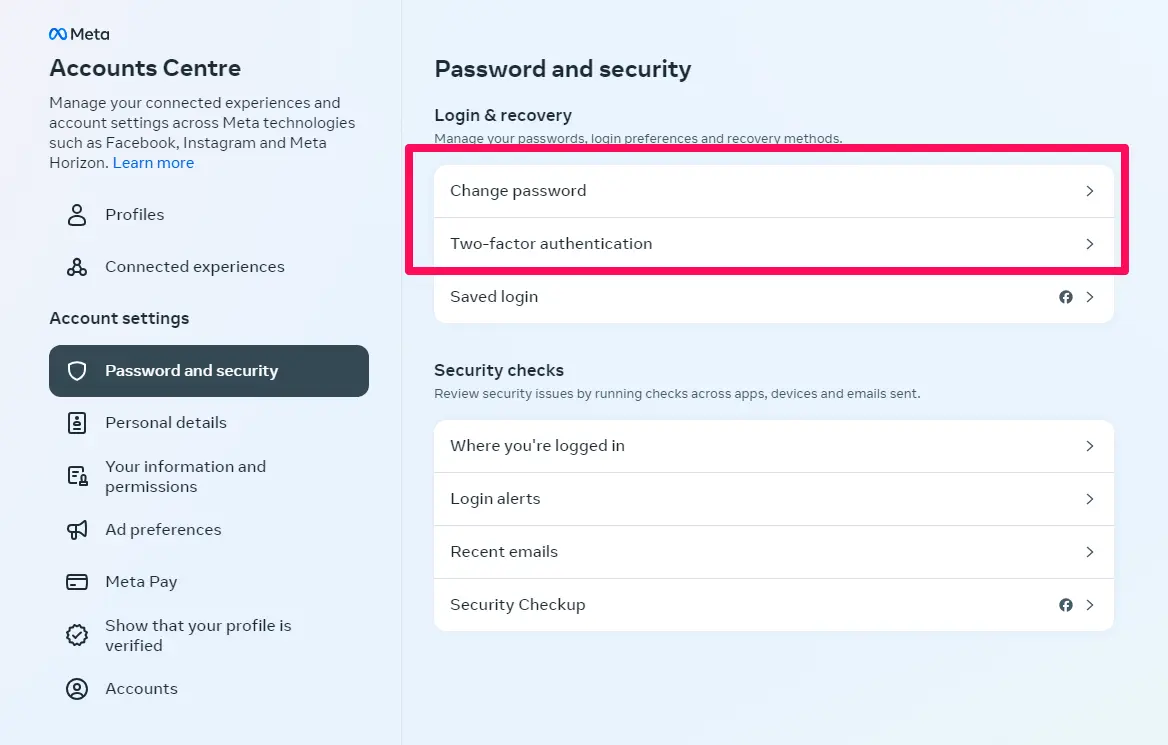
- Revoke access to third-party apps: Hackers may have used malicious apps to access your account. Go to “Apps and Websites” under “Your activity” section and remove any suspicious or unused applications that have access to your account.
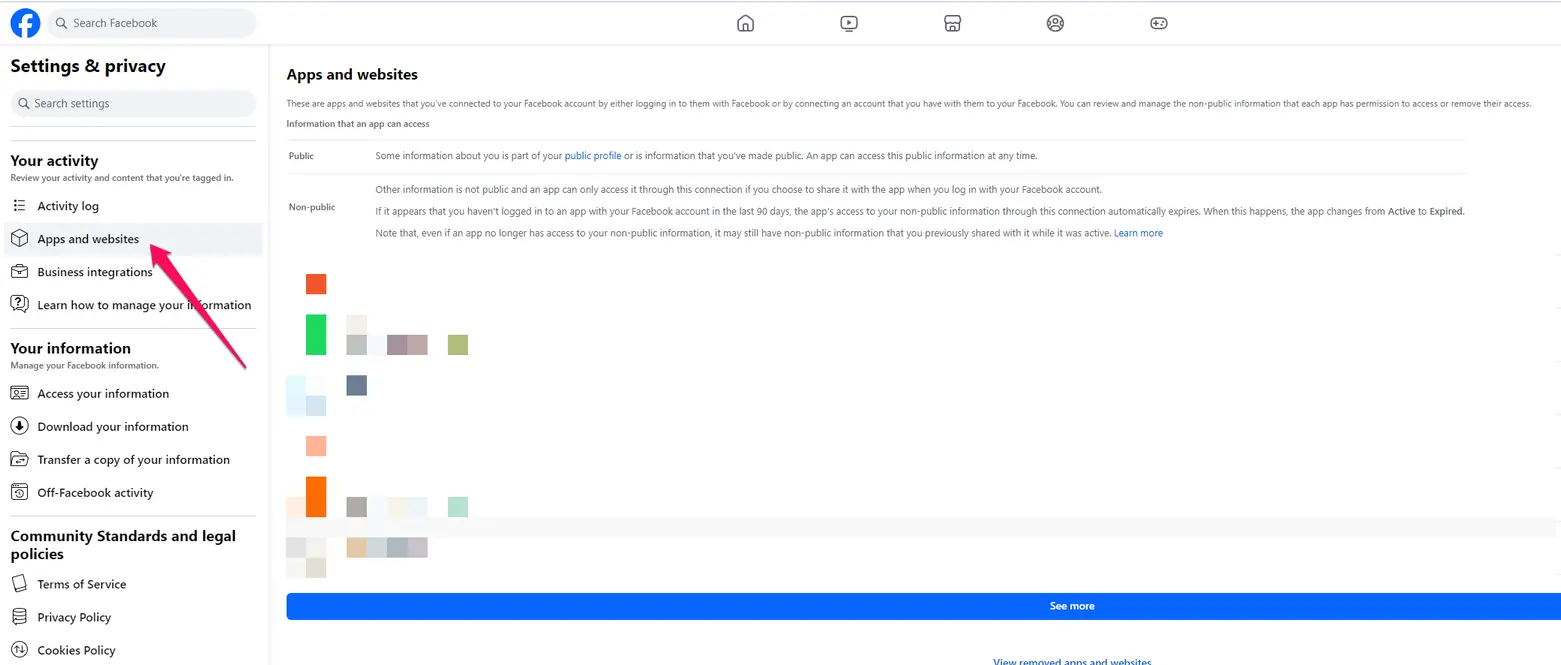
- Check for connected devices: In the “Security and login information” section, you can view a list of devices logged into your account under “Recognized devices”. If you see unknown devices, remove them immediately.
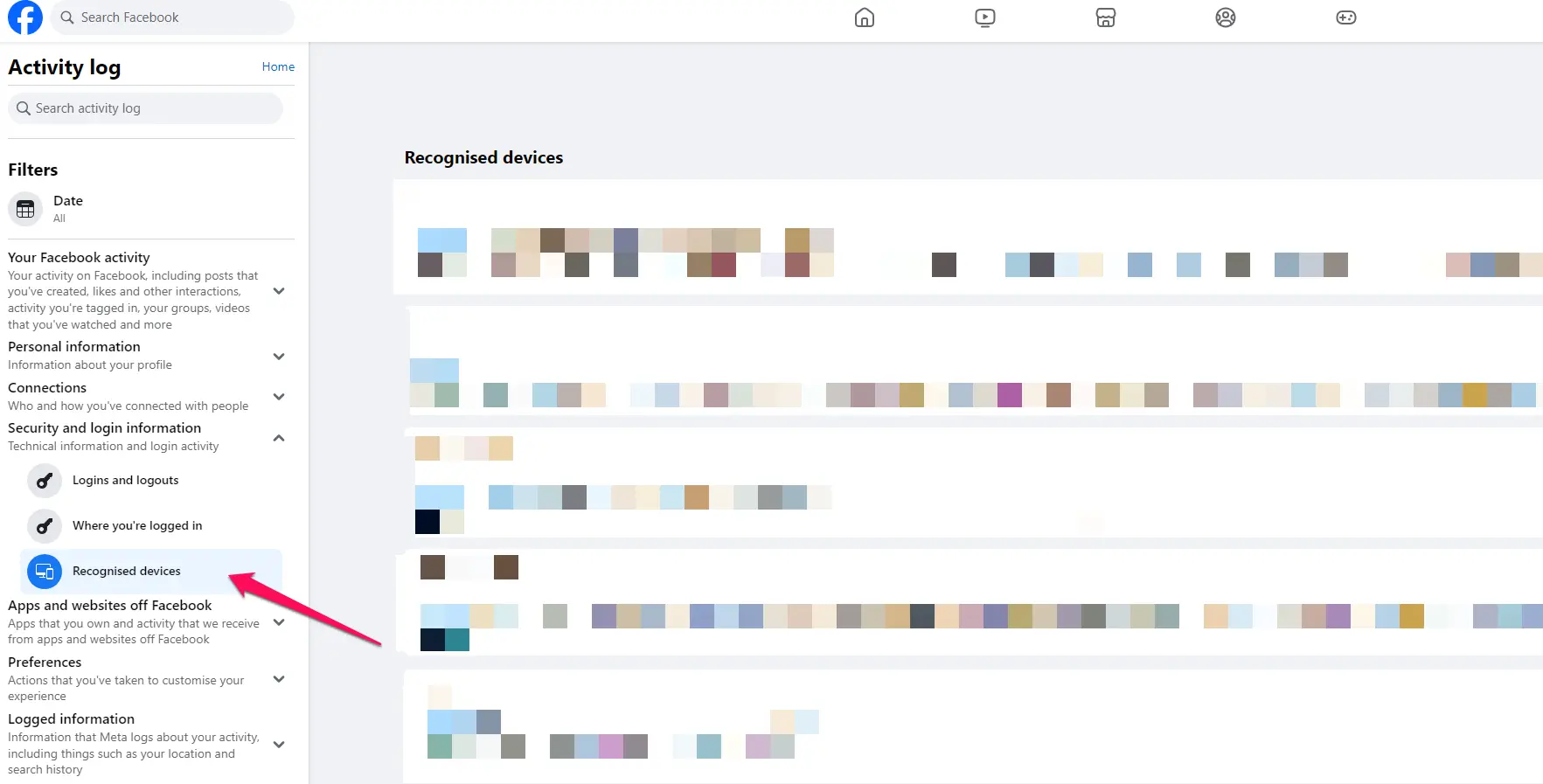
- Check for any unauthorized changes: Go through all the settings in your account and make sure there have been no unauthorized changes made, such as linked apps or allowed logins.
- Remove suspicious posts or messages: Delete any posts or messages sent from your account without your knowledge. If needed, inform friends and family to ignore them.
- Review login sessions: Go to your “Security and Login” settings and review the recent login sessions. If you see any unfamiliar activity, end those sessions immediately.
- Scan for malware: Hackers may have gained access to your account through malware on your device. Use a reputable antivirus software to scan for any malicious programs.
- Secure other accounts: If you use the same password or email address for other accounts, change them immediately and enable two-factor authentication where possible.
How to report hacked Facebook account?
An additional step you can take is to report the hacked account to Facebook. This helps the platform track and prevent similar attacks in the future.
To report a hacked account on Facebook, use the Hacked Wizard page on the Facebook Help Centre. Answer a few questions and provide some details about the hack, and Facebook’s security team will take necessary action to secure your account.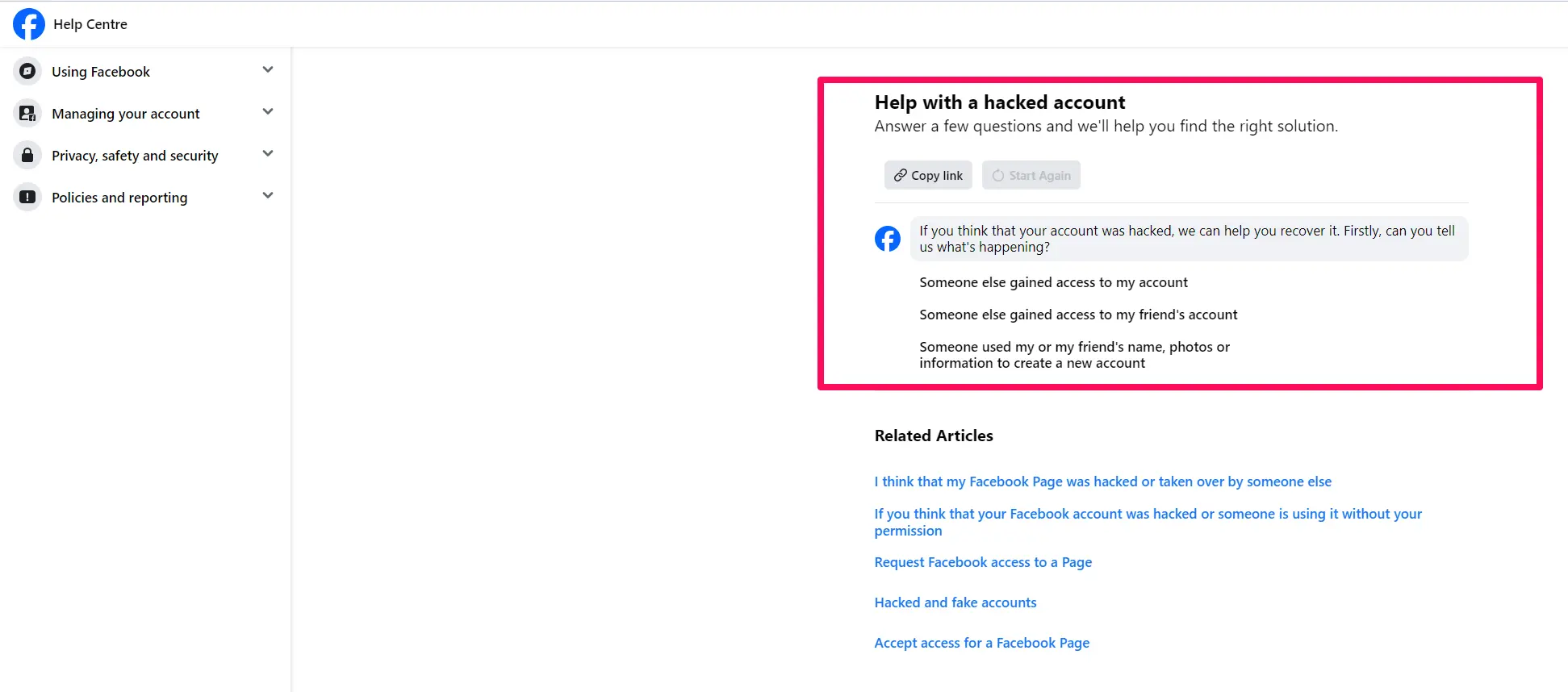
How to recover hacked Facebook account
But let’s say that the Facebook hack has locked you out of your account, and you can’t access it to secure it. In that case, there’s an option on the Hacked Wizard page where it’ll ask you if you can’t access your account.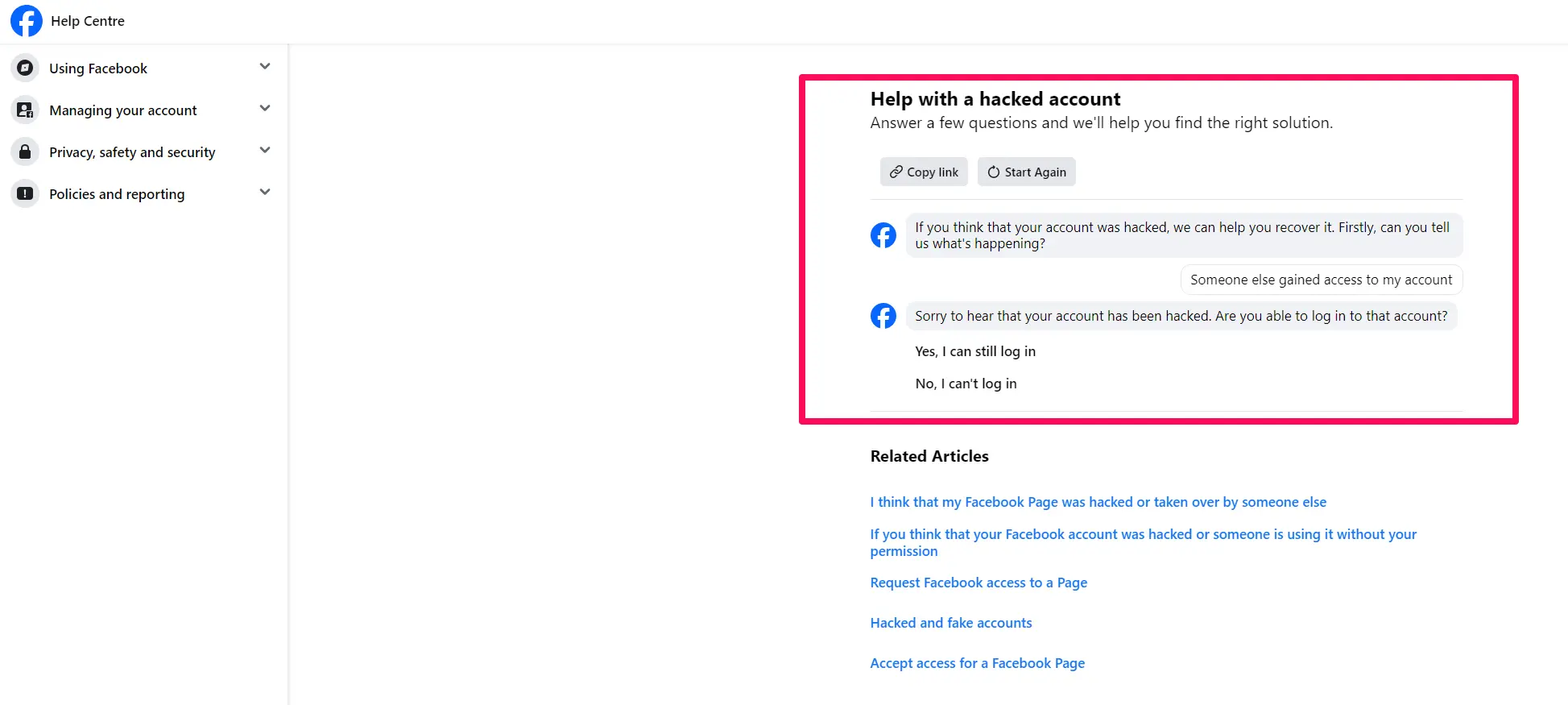
From there, Facebook will guide you through the steps to recover your account. This includes identifying your account through email or phone number, providing a government-issued ID for verification, and resetting your password.
Note that a hacked account on Facebook can take some time to recover, so it’s crucial to take proactive measures to secure your account and prevent further attacks.
FAQs
Can I report my Facebook account being hacked?
Yes, you can report your Facebook account if it has been hacked. Use the Hacked Wizard page on the Facebook Help Centre to provide details about the hack, and Facebook’s security team will assist in securing your account and preventing further issues.
How do I recover my Facebook account?
To recover your Facebook account, visit the Hacked Wizard page on the Facebook Help Centre. Follow the prompts to identify your account, verify your identity with a government-issued ID if necessary, and reset your password to regain access.
How to enable 2FA on Facebook?
To enable two-factor authentication (2FA) on Facebook, go to “Settings & Privacy,” select “Settings,” then “Password and security.” Select “Two-Factor Authentication,” and follow the prompts to choose your preferred authentication method, such as text message codes or authentication apps.
